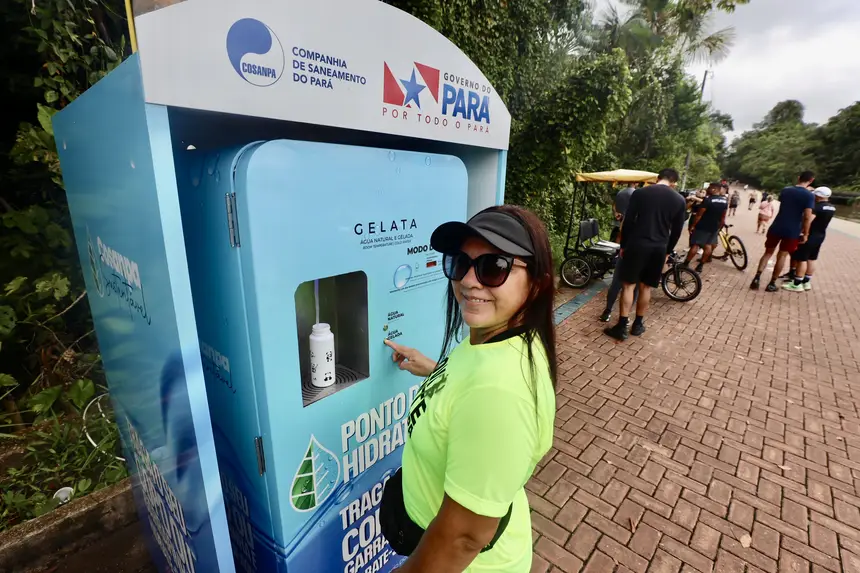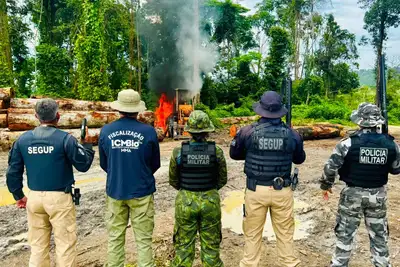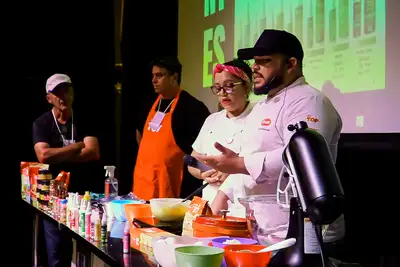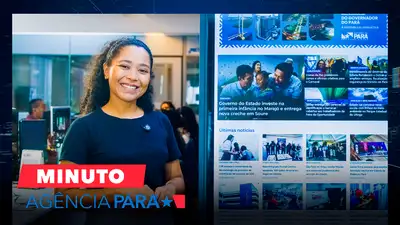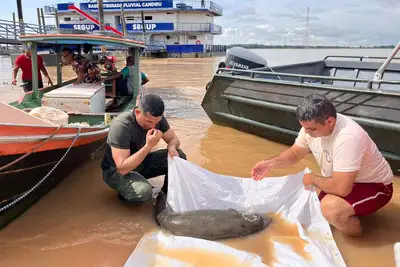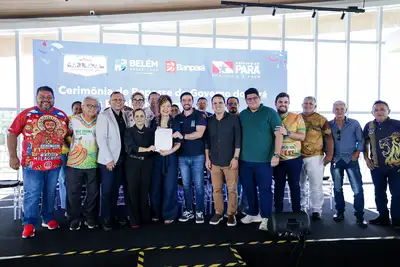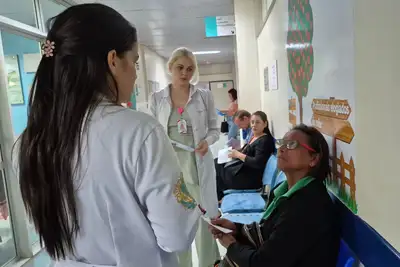Free hydration points ensure well-being in public parks of Belém
Equipment installed in the Utinga State Park, Porto Futuro, and City Park (Green Zone) have already prevented the disposal of 60,000 plastic bottles this year
Anyone in Belém in the next two weeks, when the city will host the 30th United Nations Conference on Climate Change (COP30), will have access to hydration points with free water in areas of the event and tourist spots. In addition to facilitating access to water, the equipment installed by the Government of Pará encourages the reduction of the use and disposal of plastic bottles or cups during the Conference.
The hydration points are located in the Utinga Camillo Vianna State Park, Porto Futuro, and City Park - in the Green Zone of COP30 - an area managed by the Federal Government and open to civil society, public and private institutions, traditional communities, youth, and other non-governmental entities, who will gather for dialogue and presentation of technology and innovation projects in solutions for the climate crisis.
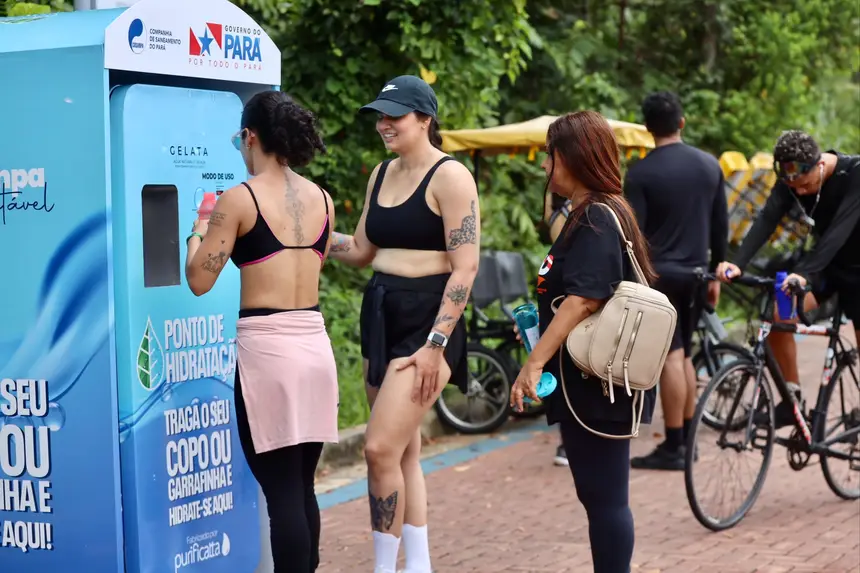
The free hydration in the main public parks of Belém is carried out by the Government of Pará, through the Sanitation Company (Cosanpa). The first equipment was installed at the beginning of the year, in Utinga Park, and later in Porto Futuro and City Park.
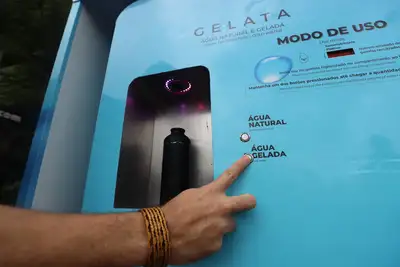
With the three hydration points, more than 60,000 plastic bottles have been prevented from circulating in these environments. The calculation is made based on meters installed in the equipment, considering a 300 ml PET bottle of water. "More than just providing free water, our hydration points also offer health and protection to the environment, reducing the use of disposable plastic, which today is one of the main pollutants present in waters around the world," emphasizes the president of Cosanpa, Colonel PM Dilson Júnior.
Global challenge - According to studies by the United Nations Environment Programme (UNEP), about 430 million tons of plastics are produced annually on the planet. Of this total, about 11 million tons end up in aquatic ecosystems, and reversing this scenario involves investing in basic sanitation, including aspects such as sewage treatment and proper waste disposal.
With over R$ 340 million invested in the first eight months of the year, the sanitation sector was one of the most improved in Pará. The investments ensured advances in potable water systems, sewage collection and treatment, solid waste management, and stormwater drainage.
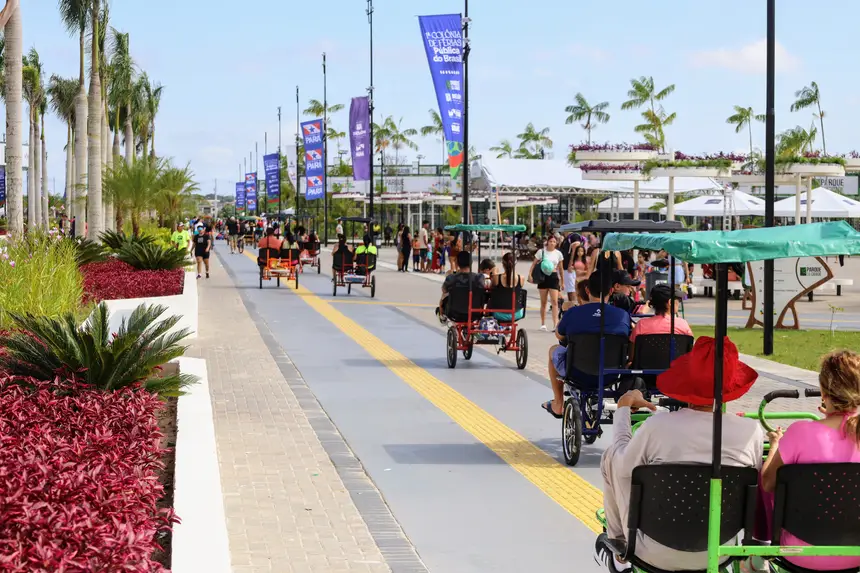
In the last seven years, the Government of Pará has already carried out interventions in 18 channels in Belém, of which 13 are legacies of COP30. Among the completed works are the channels of Igarapé Tucunduba, Rua dos Mundurucus, Timbó, Vileta, Leal Martins, Cipriano Santos, Gentil Bittencourt, and Doca (Avenida Visconde de Souza Franco). The actions also include interventions in the basins of Murutucu, Tamandaré, and Una, with a direct impact on urban infrastructure and basic sanitation, improving the quality of life for more than half a million residents of Pará.
Another highlight of investment in sanitation is the completion of the Una Treatment Station – ETE UNA, the largest ever built in Pará. The structure had an investment of over R$ 134 million and was delivered at the beginning of October, benefiting more than 90,000 residents of ten neighborhoods in Belém: Marco, São Brás, Sacramenta, Telégrafo, Pedreira, Fátima, Umarizal, Reduto, Nazaré, and Campina.
Historic investment - In 2025, Pará also took an important step towards universal access to water and sewage services for more than 5.3 million people in 126 municipalities. The sanitation concession in these cities was carried out this year, enabling investments of over R$ 20 billion.
Aegea was the winner of the bids, and the operation in the State will be carried out by the subsidiary Águas do Pará, which has anticipated the operation and the first investments in water distribution networks, sewage collection, and treatment in the municipalities of Belém, Ananindeua, and Marituba.
With the concession, the State's goal is to universalize access to treated water by 2033 in all blocks, as well as sewage collection and treatment by 2039 in blocks B, C, and D, and by 2033 in block A. The deadlines comply with the guidelines of the Legal Framework for Sanitation (Law No. 14.026/2020).


